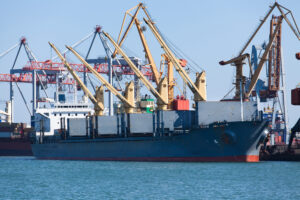UK agri-food exports to the EU decreased by on average 16.34% per year compared to the previous 3-year period, following the end of the Brexit transition period in January 2021, according to a briefing paper published recently by the Centre for Inclusive Trade Policy (CITP).
The new research shows that in 2023 global agri-food exports of food, feed and drink were £24.4 billion(bn), a £3.1bn (11%) decrease compared to 2022 (adjusted for inflation).
Imports declined to £61.1bn, a £5.9bn (8.8%) reduction in comparison to 2022. The overall UK agri-food deficit stood at £36.7bn, a fall of £2.8bn (7.1%) against the previous year.
By value in 2023, the UK exported £14.0bn of food, feed and drink to the EU and imported £43.8bn, a £29.8 deficit.
The new regime of regulatory barriers on UK traders includes enhanced documentary requirements, physical inspections, administrative border processes and requires additional essential knowledge that all traders must have to ensure compliance and minimise supply chain friction.
The new requirements for physical, documentary and identity checks have complicated agri-food trade between the UK and EU post-Brexit.
The CITP report said that the UK government has affirmed that pursuing a Sanitary and Phytosanitary Standards (SPS) Agreement with the EU that reduces such checks is one of its objectives.
Farmers have cited increased input costs and new regulatory import/export issues as the top reasons why a majority feel negative about Brexit.
The UK agri-food sector – from primary producers to manufacturers – identifies a new SPS agreement with the EU as a core component of growth and sectoral resilience.
As the EU-New Zealand Veterinary Agreement model illustrates, a UK-EU SPS Agreement, even if negotiated successfully, risks doing little to address existing border barriers between the UK and EU.
According to the report, a more ambitious and effective, SPS Agreement will require both sides to navigate and define the flexibilities in their Brexit-era ‘red lines’.
“Ultimately, a broad SPS Agreement that includes dynamic alignment will likely require not only legislative but also some institutional alignment, as well as reforms to UK domestic policy development and border enforcement,” the report concluded.
The full report can be found here.



